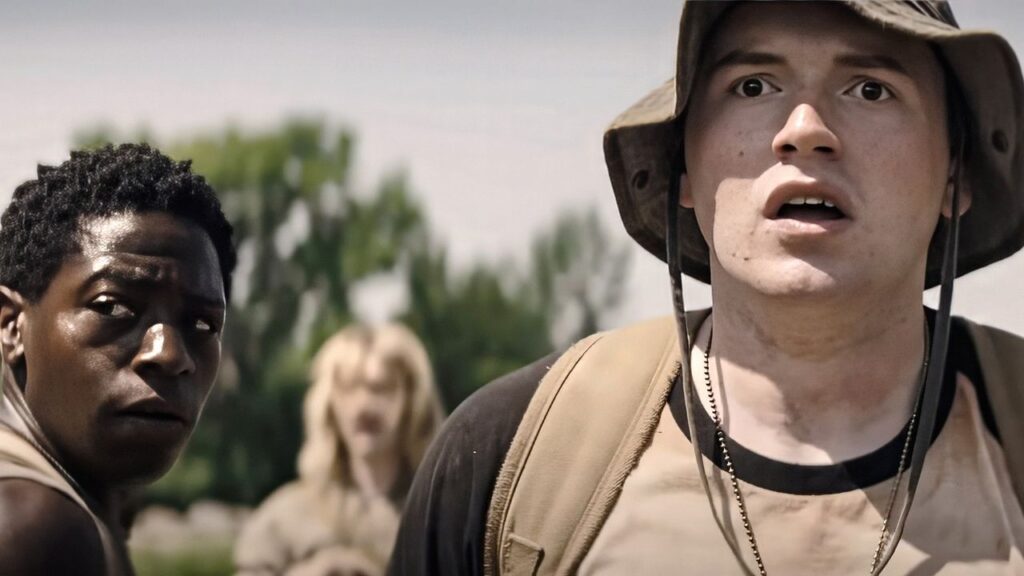As it happens, both films are based on novels King originally published under the pen name Richard Bachman. King initially concocted Bachman because his publishers were reluctant to keep up with his coked-out pace and publish multiple titles a year. At first, King wrote years later in an essay reflecting on the Bachman era, “Dicky” merely offered him “a sheltered place where I could publish a few early books which I felt readers might like.” But he also acknowledged that the mystery man became “a kind of id for me; he said the things I couldn’t.” The first Bachman outing, 1977’s Rage, centers on a school shooter, years before violent death in educational settings became a depressing commonplace in American life. After the 1997 Heath High School shooting in Paducah, Kentucky, King asked his publisher to “take the damned thing out of print.”
Even Bachman’s fictional life was harsh. He’d served in the Coast Guard and the Merchant Marines and later lost a son, aged six, to drowning. His oeuvre, King wrote, came from “a place in most of us where rain is pretty much constant, the shadows are always long, and the woods are full of monsters.” In 1985’s Thinner, King’s fifth Bachman novel, a lawyer escapes justice after accidentally killing a Romani woman with his car, and her father curses him to waste away; after it was published, a bookseller who was also a keen King reader put two and two together, and King unmasked in an interview with the Washington Post. Misery, originally in contention to be Bachman’s sixth novel, became the next Stephen King book instead. He later wrote that Bachman passed away due to “cancer of the pseudonym,” although a couple “lost” Bachman works have surfaced in the ensuing years.
Bachman’s blisteringly cruel The Long Walk was actually King’s very first novel—although it wasn’t published until 1979, he finished it in 1966, when “Vietnam was chewing up our kids pretty bad.” For decades, even as film and television stripmined the rest of King’s catalog, it’s been seen as untouchable, although George A. Romero and King-whisperer Frank Darabont both tried to get adaptations off the ground. The version hitting theaters this week stars Cooper Hoffman and David Jonsson (spoiler alert: they’re magnificent). It was directed by Francis Lawrence, who’s honed a cinematic eye for kids being killed for televised sport across four Hunger Games movies. It’ll even turn Luke Skywalker evil, with Mark Hamill (also a Life of Chuck player) portraying a uniquely despicable villain never without his aviators. With The Long Walk, there’s no chance at a happy ending, only the least unhappy one.
Based on the trailer and director Edgar Wright’s résumé, The Running Man may give us a slightly zanier spin on a story whose Bachman-book iteration is nearly as desolate as Walk. (King once flexed that the whole novel was “written during a period of seventy-two hours and published with virtually no changes.”) Wright’s movie, starring Glen Powell, will be the second big-screen Running Man adaptation. Its predecessor, from 1987, was a fully batshit Arnold Schwarzenegger experiment featuring a cornucopia of gruesome one-liners and costuming choices, as well as an upbeat ending that King reportedly disliked. He once called the book’s finale “the Richard Bachman version of a happy ending”; without giving away too much, restoring the original conclusion will take some cojones on Wright’s part, even 24 years after 9/11.


